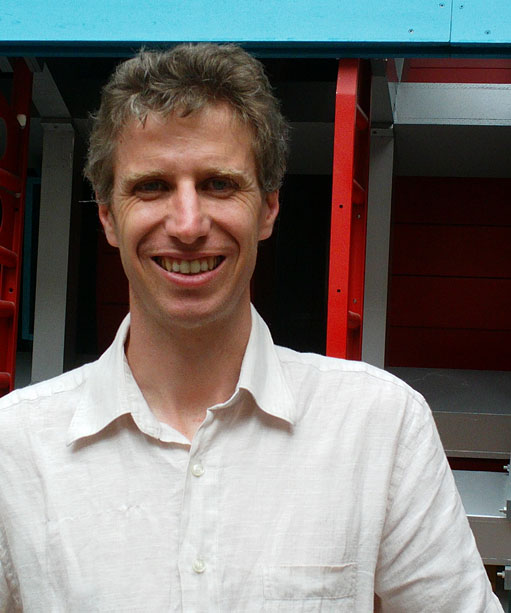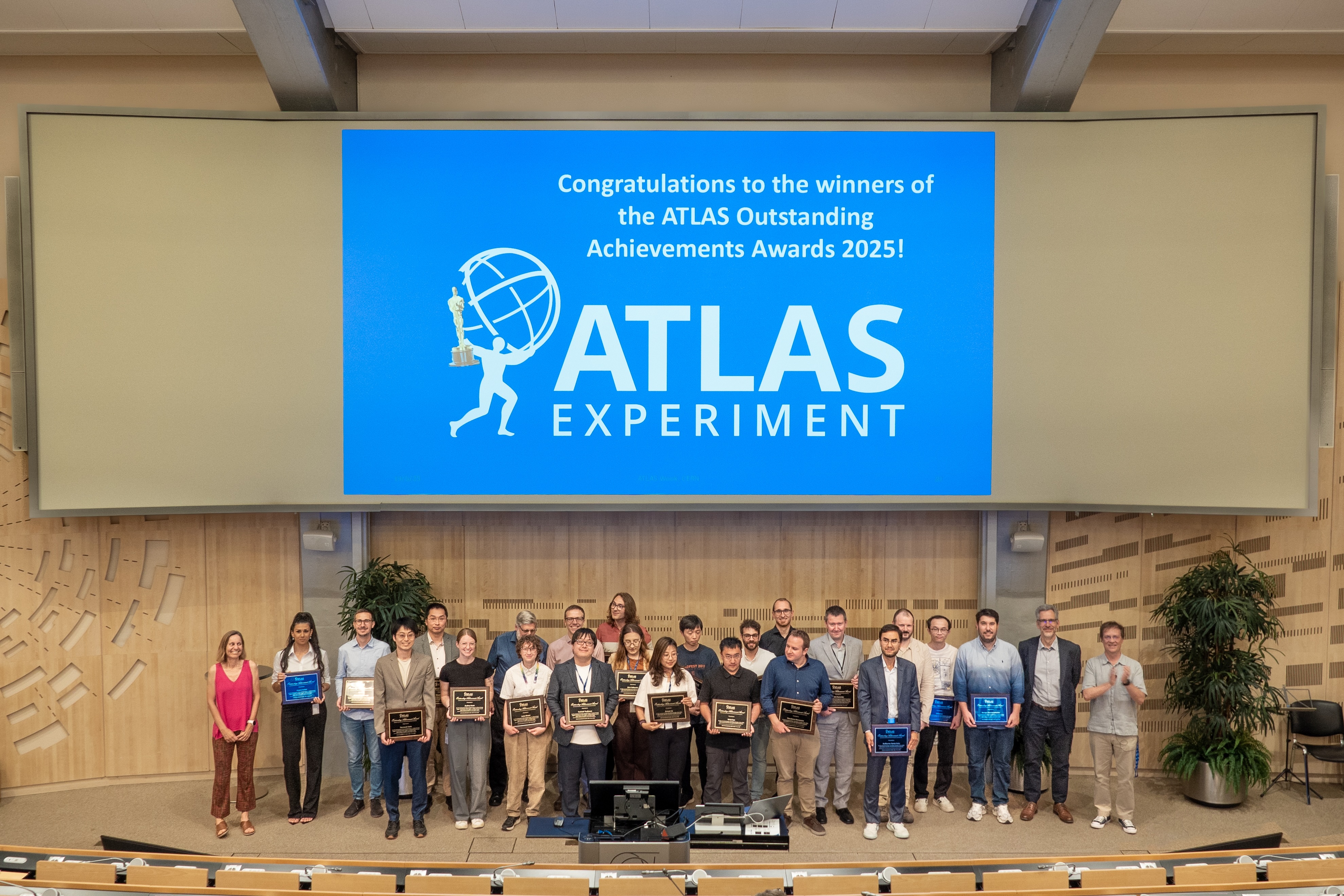Pascal Pralavorio
13 July 2010 | By

“In a sense, life is never as you've foreseen it to be. This is also true for natural laws, and that's why I like to be a physicist so much,” Pascal Pralavorio says as he explains what makes discovery so interesting for him.
Pascal seems to have a trend flowing through his life: to strategise and plan, to accept the consequences of discovery, and to enjoy the ride. For him, to explore is everything. With such varied interests as physics, singing, and playing guitar, piano, and games of strategy, it is apparent that he has a love for the thinking process. Pascal enjoys what he encounters unexpectedly, and especially what stems from the toughest parts of problematic situations.
“For me, the real pleasure is when you solve a problem, or solve a difficulty, even in your life, and you see that it's difficult. If you feel the difficulty, and you overcome this difficulty, then you are really feeling a part of you, and have a lot of pleasure because of it.”
Coming from the Centre de Physique des Particules de Marseille (IN2P3), Pascal took part in the construction, testing, and commissioning of the ATLAS Electromagnetic Calorimeter. He worked for many years preparing it to perform as expected. It was very difficult for him when, in September 2008, the LHC suddenly failed. He could have gone away from ATLAS at that point, realising that he had already learned a great deal, but decided to wait for a second chance to get this extraordinary machine running. He is very glad he did. Experience has taught him not to anticipate success, but to expect, with proper preparation, to encounter the unforeseeable with joy. To him, this makes the whole journey worthwhile.
Along these lines, his insights are clearly valuable. “If you have something you really want, and you do all the things in this direction, you always get some prize. Not always the one you will expect, or the one you have searched for, but you always get something.” He added, “In a sense, life is never as you've foreseen it to be. This is also true for natural laws, and that's why I like to be a physicist so much.”
At present, Pascal is engaged in helping rediscover the Z and W bosons. “It is a major milestone for the ATLAS detector since these particles were discovered at CERN almost 30 years ago. This is the first step before any new discovery can be claimed!”
He is part of the team which ensures that the calorimeter is working as expected. More precisely, thanks to the work he has pursued with his colleague, Fabrice Hubaut, they managed to detect subtle changes in the material located in front of the calorimeter, as reported in a recent issue of ATLAS e-News. Pascal is deeply involved in understanding how to best detect particles that deposit no energy in the calorimeter. He does this through inferring their presence by means of tracking missing energy. This work means a great deal to him, and this research and data analysis are absolutely central in his life.
Pascal also has a love of games. Igisoro and Go are two of his favorites, both of which satisfy his penchant for strategy. Igisoro is a two-player game, part of the mancala family, and a variant played primarily in central Africa. Go is from China and is an abstract strategy game involving the capture of your opponents stones, as well as the creation of territories.
Pascal is the father of two girls, Lisa and Noemie, and he is married to Corinne Pralavorio, who works at CERN in the communication group. Of all of his family's activities, walking in nature and singing together are his favorites. All four of them sing, and it seems that his heart likely soars a bit when he gets to sing with his girls.
Though he clearly loves to sing, Pascal also plays the guitar and piano, and has a group of musical friends near his home in Farges, France, with whom he sometimes plays. Together they try to emulate music by artists such as Bob Dylan. To Pascal, Dylan represents something special in music, mainly because of Dylan's ability to animate language with music. “It's a melting between the words and the music and how you phrase it, and how you enhance it somehow. It's like when you put spice on your food; it completely changes your feeling. So, even if I'm not a native English [speaker] I can really feel what [Dylan's] expressing, and this is really amazing.“



